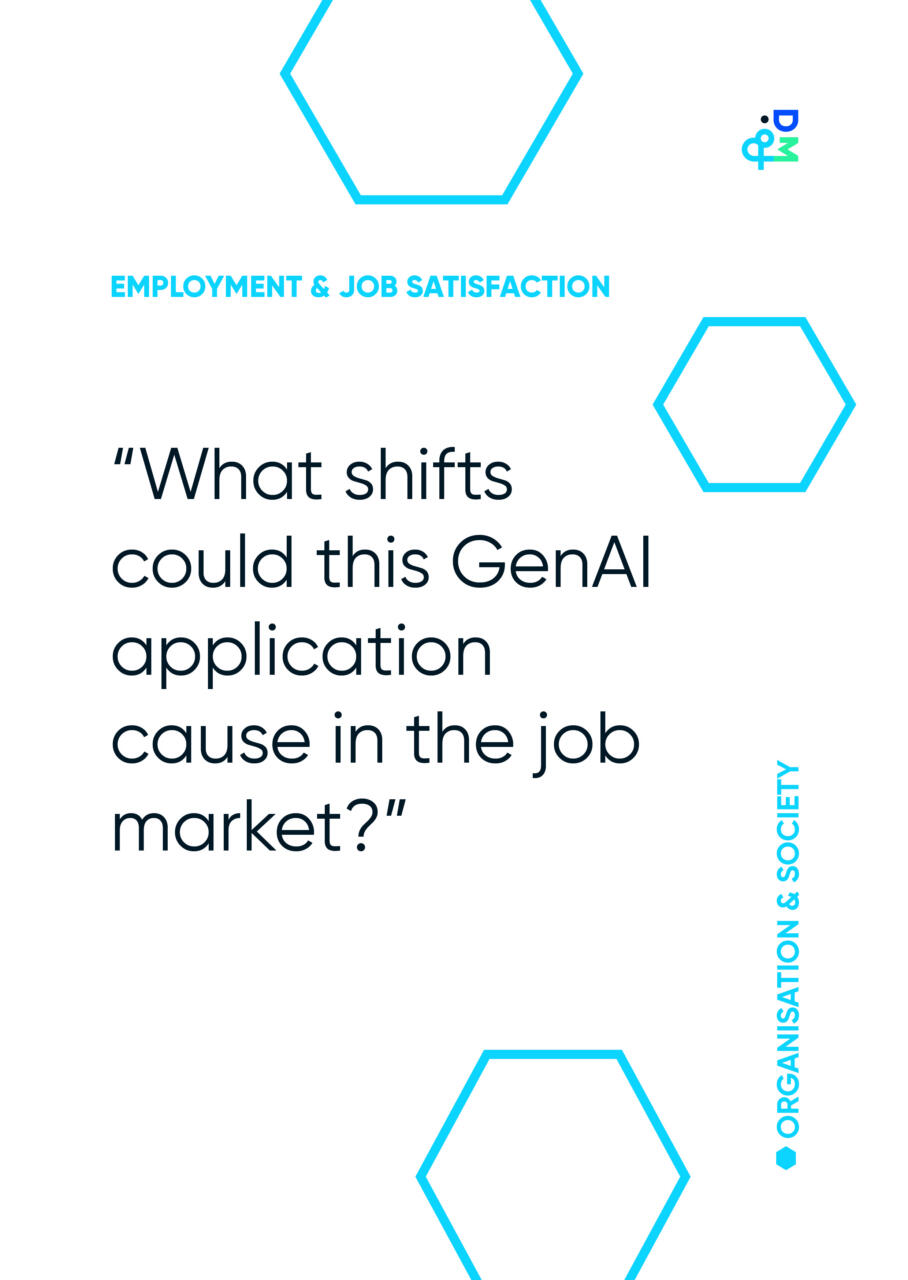Introduction
Are you planning on using generative AI (GenAI) in your organisation or for your work? Do you sometimes worry about the impact of GenAI on the quality of your output or, broader, our society? The rapid rise of GenAI marks a new wave in artificial intelligence, promising increased efficiency, creative augmentation, and a boost in productivity across industries. With the democratisation of GenAI applications, anyone – from individuals to large enterprises – can now harness these technologies with minimal barriers to entry. However, this accessibility also raises pressing ethical concerns, as the widespread adoption of GenAI is already transforming sectors such as media, education and creative work, often sparking a moral panic about its potential consequences for employment, ecological impact, privacy, IP use, etc.
With all this in mind, the Knowledge Centre Data & Society developed the GenAI Blind Spots card set. The card set helps professionals uncover and navigate the ethical risks unique to GenAI technologies. This can serve as the starting point to draft mitigation actions on how to deal with these issues in the organisation.
In this article, we introduce the potential ethical dilemmas surrounding GenAI and how the GenAI Blind Spots card set can be used to make these ethical considerations more tangible and actionable. We outline its purpose and structure, as well as how it facilitates critical conversations on responsible GenAI implementation and use. Additionally, we share the insights from developing the GenAI Blind Spots card set during several workshops with academics and practitioners, including the one that took place at the TH/NGS conference in December 2024.












